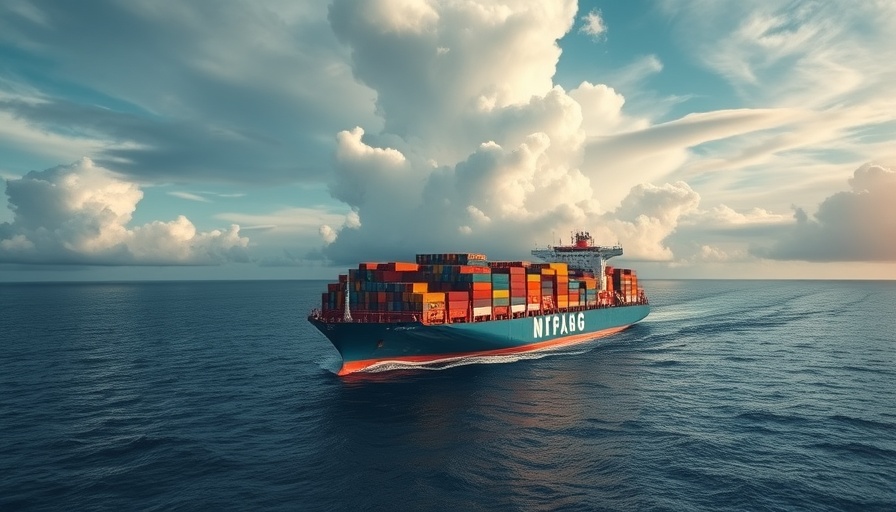
Understanding the Blue Economy: A Dual Approach to Sustainability
The blue economy concept, emphasizing the sustainable use of marine ecosystems while fostering economic growth, has become pertinent in Nigeria's maritime development. This dual approach aims to balance socio-economic interests with environmental protections, offering pathways for job creation and resource management. The Nigerian Shippers Council's 'Maritime Raider' highlights how maritime domain awareness plays a pivotal role in promoting best practices and enhancing security in these waters.
In 'Enhancing Nigeria's Shipping Industry Through Maritime Domain Awareness', the discussion covers potential opportunities within Nigeria's maritime sector, prompting a deeper analysis of the interplay between sustainable development and economic growth.
Maritime Domain Awareness: Key to Safe and Efficient Waters
Maritime domain awareness (MDA) encapsulates the management and understanding of maritime activities. Essential for safety and operational readiness, MDA tools identify threats and improve response strategies, safeguarding marine resources crucial to Nigeria's economy. Riadmir Francis Akan emphasizes the need for integrated awareness systems to mitigate risks associated with sea robbery and illegal fishing, driving home the point that effective MDA fosters a culture of safety and accountability within the maritime community.
The Urgency of Policy Implementation in the Nigerian Maritime Sector
Despite the availability of policies such as the national policy on marine and blue economy, their effective implementation has often lagged. As highlighted by experts, the Nigerian maritime industry's trajectory depends largely on the collaboration between various governmental agencies and stakeholders. A top-down approach, underscored by the Minister of Marine and Blue Economy, seeks to unify efforts across sectors to cultivate an inclusive environment for investment and growth.
Addressing Sea Robbery and Maritime Security Challenges
Professor Akan makes an astute observation regarding the mislabeling of incidents at sea, distinguishing between piracy and sea robbery. This distinction is crucial for developing targeted strategies that enhance maritime security in Nigeria. The deployment of a robust surveillance system, such as the Falcon Eye initiative, is instrumental in tracking illegal activities and ensuring the safety of maritime routes, which significantly contribute to the nation’s GDP.
Shaping Future Directions for Maritime Trade in Nigeria
With the potential to create millions of jobs, the blue economy offers significant promise if Nigeria can harness its maritime resources effectively. The ongoing dialogue around the Cabotage Act and its implications for local ship ownership and maritime investment is central to this discussion. If implemented successfully, not only would it improve national capacity and reduce reliance on foreign entities, but also it would provide lucrative opportunities for local employment in the shipping and logistics sectors.
Building Capacity through Education and Infrastructure Investment
Investing in education and infrastructure is crucial for realizing the blue economy's potential. Increased capacity in maritime education institutes can equip individuals with competencies in shipbuilding, marine logistics, and environmental management. Coupled with improvements in port infrastructure, such as the rehabilitation of the Apapa and Tin-can ports, these efforts could facilitate smoother operations within Nigeria's maritime domain.
The Role of Stakeholder Engagement in Maritime Policy Development
Successful implementation of maritime policies hinges on comprehensive stakeholder engagement. By forging partnerships between governmental bodies, the private sector, and local communities, a shared commitment to sustainable practices can be cultivated. This collaborative framework encourages the active participation of diverse voices in the decision-making process, which is vital for solutions that address local challenges while supporting national goals.
In conclusion, Nigeria stands at a pivotal moment in reshaping its maritime identity. By prioritizing the sustainable management of its vast marine resources, the country can bolster its economy, create employment opportunities, and promote environmental stewardship. The ongoing initiatives discussed in the recent episode of 'Maritime Raider' illustrate the country’s commitment to aligning its maritime sector with global best practices, which is essential for future prosperity. As more stakeholders recognize the critical intertwining of economic growth and ecological balance, Nigeria's blue economy can truly flourish.
 Add Row
Add Row  Add
Add 


Write A Comment